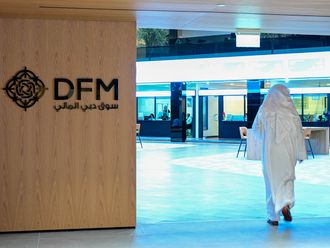
Just over 18 months ago, I took office as the president with the task of facing up to the most severe economic crisis in the history of Brazil along with its deep social impacts on our people. With this challenge, I have put forward a transformation agenda, without populist measures, which comprises the broadest set of structuring reforms for the past 30 years based upon fiscal balance, social responsibility and increase in productivity.
The results are already visible. The recession was reversed and the economy has grown for the last two consecutive quarters. Inflation in September (2.54 per cent) was below the national target. Interest rates have dropped in a sustainable manner, ensuring an additional 80 billion reais ($24 billion; Dh91 billion) to the public coffers.
Our trade balance has broken records: between January and October, the Brazilian trade surplus had an increase of 51.8 per cent in relation to the same period of 2016. Industrial output increased by 1.6 per cent over the same period (in May 2016, it shrunk by 9.8 per cent).
In comparison with 2016, vehicle exports grew by 55.7 per cent and sales in the domestic market grew by 9.28 per cent; grain corps should increase 30 per cent, reaching the historic record of 242 million tonnes in 2017; port usage has grown by 5.7 per cent; and domestic aviation market increased by 6.6 per cent.
This virtuous cycle lies at the root of the recovery of trust in the economy. The Business Confidence Index peaked at 90.3 points in October, the highest level since July 2014. The Brazil risk index had a reduction of 56.1 per cent, from January 2016 to October 2017.
The IBOVESPA index surpassed 76,000 points in September 2017, recovering from 38,000 points at which it stood in January 2016. Energy auctions, with a new regulatory model, raised 22 billion reais (about $6.7 billion), amid an expected investments of 444 billion reais ($135 billion) over the next few years and 500,000 new jobs.
Economic rationality and predictability measures improved the business environment by means of initiatives such as de-bureaucratisation in the agricultural, services, retail and foreign trade sectors.
State enterprises have regained value and generated profits of 4.6 billion reais in 2016 ($1.4 billion) and 17.3 billion reais ($5.2 billion) in the first-half of 2017. The employment law was modernised to raise productivity, without removing rights, and brought informal workers into formal employment.
The success of this agenda is reflected in the increase of employment rate indexes. According to measurements of the Brazilian Institute of Geography and Statistics (IBGE), in the third quarter of 2017 alone more than 1.06 million jobs were created in Brazil, with 524,000 people leaving the ranks of the unemployed. Employee real aggregate income rose 3.9 per cent in the third quarter in comparison to the same period of 2016.
The reinstatement of fiscal responsibility and economic growth enabled an increase in the resources allocated to social welfare. Social welfare programmes, previously at risk of fiscal collapse, were recovered, thanks to efficiency in public spending. The ‘Bolsa Família’ benefit has been increased by 12.5 per cent and its waiting lists have been extinguished. The government launched the ‘Progredir’ (Getting ahead) programme, which helps families on benefit to obtain employment and credit. Boldly, I have released the dormant social benefits accounts and advanced its withdrawals, serving millions of Brazilians and injecting 60 billion reais into the economy.
Health and education budgets have also increased. With the rationalisation of health care management, resources were redirected for equipment purchase, as well as the opening of new health care units and hiring of new staff. Moreover, the Student Financing Fund (FIES) offered 75,000 new study places, avoiding delays in resource transfers.
The results show that the strategy put forward and implemented by the government is the right one. We have left the economic crisis behind and are back on the development track.
Persuaded that there is no time to waste, I will advance the approval of the reform agenda. The next step will be the continuity of reforms, which will ensure solvency and survival of the system, in addition to removing privileges.
Simplifying the tax law, another priority, will increase the competitiveness of our domestic production. With the indispensable support of the National Congress, of workers and the business community, we are putting Brazil back on track.
The writer is the President of Brazil.











